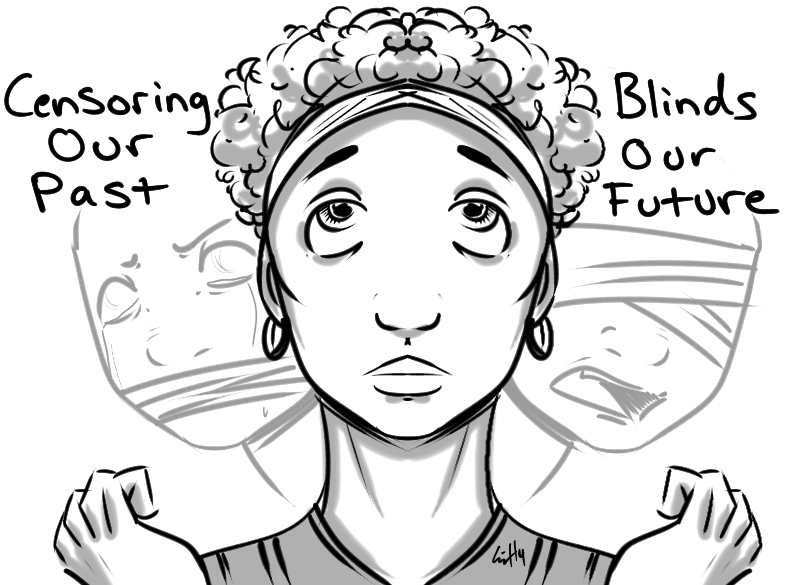Who controls the past controls the future; who controls the present controls the past” George Orwell wrote in his magnum opus 1984. The desire to “control the past” is central to a recent controversy regarding a Denver school board’s proposed changes to high school history curriculum.
The board’s conservative majority, elected last November, wants curriculums to “promote citizenship, patriotism, essentials and benefits of the free-market system, respect for authority and respect for individual rights,” and not to “encourage or condone civil disorder, social strife or disregard of the law.”
In response to the proposed changes, students walked out of class and joined together in protest, carrying hand-drawn signs with statements like, “How are we going to learn from our mistakes if the school board doesn’t want us to know about them?”
The ideological debate about history education is not new. In the mid-90s, federally funded (and voluntary) teaching standards for U.S. history sparked fierce debate, with conservative critics lambasting the standards as having a “leftist bias … [accentuating] the negative in American history….”
Why even bother studying history, though, if not to learn from our mistakes? “In a word, we may gather out of history a policy no less wise than eternal; by the comparison and application of other men’s forepassed miseries with our own like errors and ill deservings,” wrote Sir Walter Raleigh. The idea that we should scrub bad memories from history classrooms takes to heart Orwell’s idea, while ignoring the wisdom of those who share Raleigh’s view.
Not all historical examples of “civil disorder, social strife or disregard for the law” were mistakes, however. Ours is a country born out of the dissent and revolution of our forefathers. In more recent memory, the Civil Rights movement showed how, sometimes, “disregard for the law” can be necessary in the pursuit of justice. There is no greater disservice to history education than downplaying such important events and the negativity that surrounded them.
The debate about what to teach seems never-ending in suggesting that it’s impossible to divorce the teaching of political history from a desire to use history education as a mechanism of ideological indoctrination. Perhaps we should look at pre-collegiate history education in a different way.
History is more than a simple collection of dates and facts. History is a process through which things came to be the way they are. Children should be taught how the process works, rather than simply having to memorize tidbits of information to regurgitate on a test.
Dan Carlin, host of the podcasts “Common Sense” and “Hardcore History,” argues that we should “get kids to love the study of the past by connecting to their affinities. … Into music? It’s got a history. Motorcycles? Fashion? Entertainment? Sports? Getting them to explore the history of a subject they already love is a great way to teach historical knowledge and how the current reality came to be.”
I took a college course titled “Technology and Society” in which we studied the historical development of technology from the Industrial Revolution to the modern day. Unlike in the U.S. history course I took the same semester, there was no ideological controversy about past events when discussing the historical progression of technology. We did, however, learn to see how early events shaped later events, which helped form the world of today. Developing an understanding of this process ought to be the emphasis of history education, at least at the pre-collegiate level, where students are less likely to have the skills necessary to wade through the biases inherent in political history.
A shift toward teaching history as a process, rather than a string of names and dates and events, would give children the tools necessary to analyze and interpret historical events later on in life. Without critical analysis, names, dates and events become mere trivia and history education becomes nothing more than an attempt to “control the future.”








